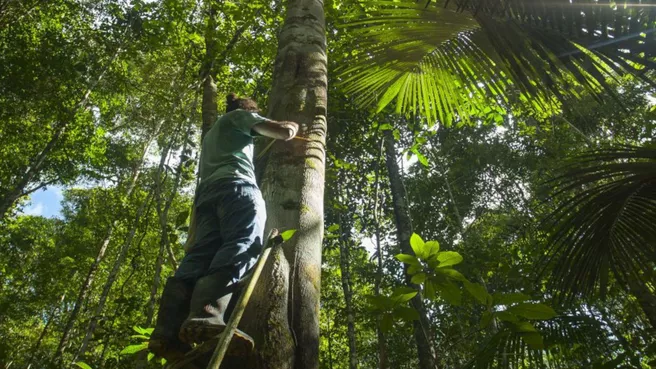For the study, researchers from an international team led by Wannes Hubau of the Royal Museum for Central Africa in Tervuren, Belgium, collected data over several decades in undisturbed tropical rainforests in Africa and the Amazon region, and have now published the results in a recent article in the scientific journal Nature. They found that the rate at which the forests have absorbed carbon dioxide from the atmosphere has decreased significantly since 1990.
"It is assumed that the increasing concentration of carbon dioxide in the atmosphere has led to increased growth and thus, increased biomass storage. This is also known as the "CO2 fertilization effect"," writes Anja Rammig, Professor for Land Surface-Atmosphere Interactions at the TUM School of Life Sciences of Technical University of Munich, in a commentary on the study from Hubau et al. in Nature. "This also reduces the ability of forests to mitigate climate change. The consequence could be an acceleration of climate change," warns Rammig in her commentary.
"The results of this study show that we need to act faster," demands Prof. Rammig. In addition to strong protection of the intact tropical forest, an even faster reduction of anthropogenic greenhouse gas emissions than envisaged in the Paris Climate Convention is necessary to prevent catastrophic climate change, says Rammig.
Link to the Nature article (Autoren: Hubau et al.)
Comment on the Nature article by Prof. Rammig
Further interview on rainforest and climate change with Prof. Rammig in the journal Nature
Editing:
Susanne Neumann
TUM School of Life Sciences
Press and Public Relations
Scientific Contact:
Prof. Anja Rammig
Professorship for Land Surface-Atmosphere Interactions
Tel. +49 8161 71 4768
anja.rammig@tum.de
